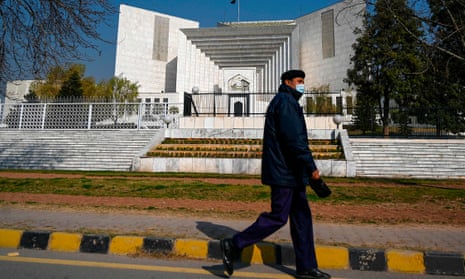In a landmark decision, Pakistan’s supreme court ruled this week that prisoners with serious mental health problems cannot be executed for their crimes.
The verdict was hailed by rights activists, who said it laid the groundwork for broader prison reforms in the country.
On Wednesday, the court commuted the death sentences of Kanizan Bibi, 46, and Imdad Ali, 55, who have spent years on death row after being convicted of murder. Bibi and Ali were diagnosed with schizophrenia after their convictions.
The judgment read: “If a condemned prisoner, due to mental illness, is found to be unable to comprehend the rationale and reason behind his/her punishment, then carrying out the death sentence will not meet the ends of justice.”
Usama Malik, a human rights attorney, told the Guardian the supreme court had not “granted carte blanche relief to every prisoner on death row suffering from mental health issues”, but a medical board will now determine which prisoners “have such grave mental health issues that sending them to the gallows would be against the principle of retribution”.
The court has also directed that prosecutors and trial judges be provided with training in how to assess mental health issues during trials.
Bibi was convicted when she was 16 of murdering the wife and five children of the wealthy landlord she worked for. In 2000 she was diagnosed with schizophrenia.
Ali was convicted of murdering a religious scholar in 2001. He was diagnosed with schizophrenia in 2008.
The Cornell Center on the Death Penalty Worldwide stated that Bibi was wrongfully convicted. She was allegedly tortured in police custody for several days before being sentenced to death in 1991.
Bibi and Ali will now be transferred to a government-run mental health facility.
Sarah Belal, executive director of Justice Project Pakistan, told the Guardian: “With this ruling, the supreme court of Pakistan has laid the groundwork for much broader prison reforms. It is a monumental judgment not only in terms of how it looks to uphold the rights of people with psychosocial disabilities, but also how it binds the federation and provinces to uphold the standards of due process and fairness.”
Since 2014, 518 people have been executed in Pakistan, and 4,225 people are on death row.
Pakistan halted capital punishment from 2008 to 2014 after pressure from international rights groups and campaigners. But in 2014, after a deadly Taliban attack on a school in Peshawar, stricter laws were introduced and the moratorium was lifted.
